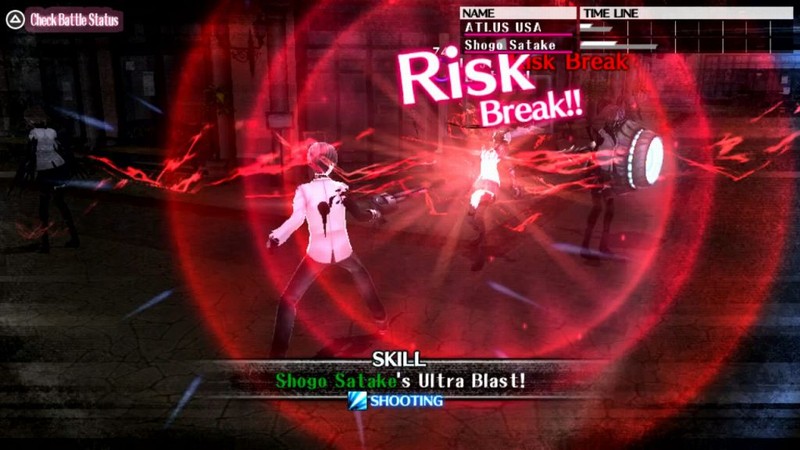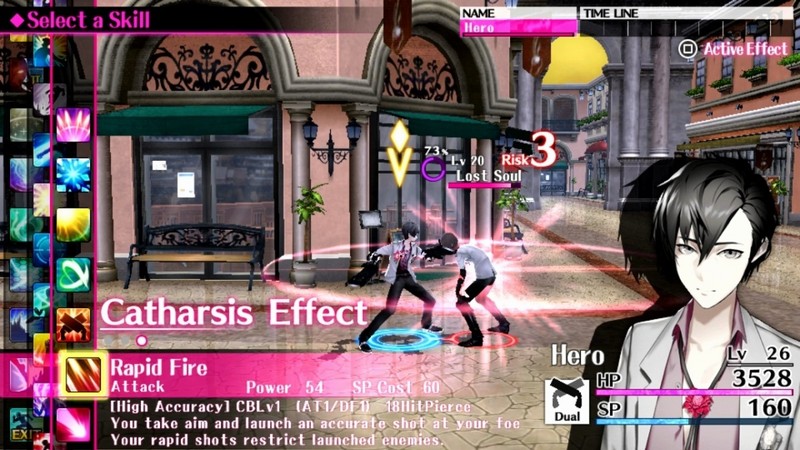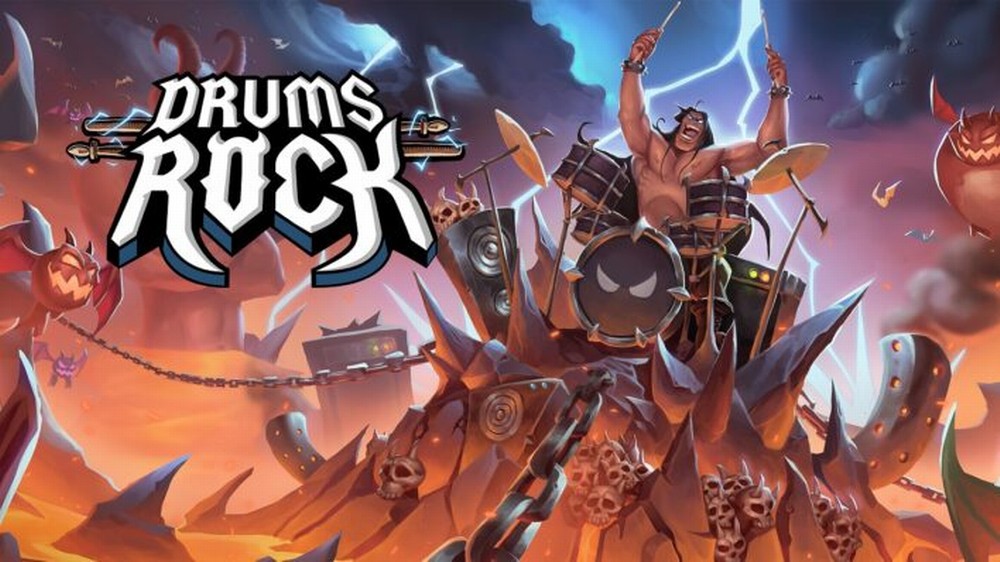Don’t go read the last paragraph of this article right now. How many of you actually did just that? If you did then you just gave into that very real psychological desire to do something that we’ve been told not to do. This is something that we’ve all encountered at some time in our lives. What if you were living in a world where you could do whatever you wanted without worry of pain, loss or cruelty? Sounds tempting huh? But what if that bliss comes at the cost of freedom. Such is the case with Aquaria’s newest RPG, The Caligula Effect for the PlayStation Vita.
The setting for this rather interesting JRPG takes place in a virtual world called Mobius where most of its inhabitants are unaware that they have been pulled into this virtual existence. To make matters even more messed up its creator, µ (pronounced Mew), has decided that high school life is the perfect setting to create a continuous loop in which for her denizens to live again and again. Yeah I don’t know if that’s more of a perfect hell or paradise.
In an almost reverse effect of Hatsune Miku, µ is a vocaloid singer that uses her singing to control the souls that live in Mobius in her own twisted way of bettering humanity’s lives. Those that have become brainwashed by her manipulation become Digiheads, hateful beings that loath anyone that would want to disrupt or leave this idyllic world of hers. Enter the main character, you, who suddenly realizes things aren’t right with this virtual world during a high school procession. You soon learn that others like you are self-aware of their situation and have been looking for a way back without drawing the ire of µ, the Ostinato Musicians and her Digiheads.
While the opposition all have a musically inclined theme, you are the newest member of the rather bluntly named Go-Home Club. This group of trauma exposed individuals has been looking for a way home and you may just be the break they’ve been looking for. As you get to know these people, as well as others in Mobius, you will learn that they all suffer from some form of personal trauma that must be overcome. Honestly it’s one of my favorite things about The Caligula Effect. Here you have people actually coming to terms with their issues instead of hiding them behind extravagance like the titular Roman Emperor whose lasting infamous lifestyle is present even here.
So gameplay is broken down into two main elements: combat and a social simulator of sorts. Sound familiar? It should as the story crafted by Persona alum Tadashi Satomi. Often you will be engaging in both activities in the same area such as “dungeons”. While you progress through the story you can talk (or attempt to) to both members of the Go-Home Club as well as 500 or so NPCs throughout the game. The interesting thing here is that by interacting with them, based largely on the situation you will raise your Affinity to them and hopefully get them to open up to reveal the trauma that they are suffering from.
The trick is that not every NPC will be open to your walk up and start talking approach. For some you have to interact with someone else via a Causality Link before they will open up. There are forces working against you as each NPC has an Erosion level shown above their heads. By their listening to announcements, watching videos or even you talking to them it can cause that Erosion level to raise or fall. If it raises and exceeds 50% then they become Digiheads and will attack you on sight.
Fighting in combat makes up the rest of the game and here is where things get really interesting. The Caligula Effect utilizes a turn based system where players can select up to 3 skills at a time. The trick is that while it is a turn based experience the enemies will engage in their own skills in nearly real time. This is where Caligula’s Imaginary Chain feature comes into play. By utilizing this feature you essentially slow or stop time and view the potential outcome of your decisions.
Now these may not come to pass based on your opponents or even ally choices but it’s a rather cool feature. The real fun begins when you get the hang of the Imaginary Chain and know just when to evade, defend or string your attacks together with those of your party to prevail against foes much stronger than yourselves. Each character has their own unique skills and even a weapon type thanks to the Catharsis Effect that brings out their emotions like the main character’s pistols or Kotono’s bow and arrow.
Skills make a big part of the combat scene and can be earned a few different ways. The first way is simply by tradition of leveling up your character and allocating Skill points to Skills. Skill points have to be distributed carefully though as they are shared by all your party members. Another way ties into interacting with the other NPC students. By eventually solving their problems you can be rewarded with Skills. There are also Stigmas that you can find that while rare can grant skills by equipping them like armor of sorts.
If Stigmas are armor to your party then what does that say about the city that you inhabit. They say that Caligula hid the things he despised behind luxury and extravagance with palaces and other things much like the way µ has created most of her perfect world. Visually, The Caligula Effect looks pretty decent for a Vita title. The world itself doesn’t really set itself apart from other school based games or show so in that regard there isn’t really anything special here. The character models, attack animations and animated cutscenes look great though. The music featured here is decent and it’s cool that the normal background music shifts to and from fully voiced songs between fights.
Even more impressive is the number of NPC that inhabit any given area. Unlike most “dungeon” locations in RPGs I’ve played there is more life in them. Most dungeons in the portable RPGs I’ve experienced are usually these large empty complexes with pop up encounter that you can’t see coming but here you can interact with NPCs while in a mission and some of them just might attack you. It’s like watching “They Live” without the glasses but knowing the danger exists anyways. With little warning other than their erosion level which you can’t really read until you get too close it’s a game of risk.
The Caligula Effect is an interesting look into the psychological desire to hide our problems behind facades or escape to other worlds where our problems don’t exist. It’s something that gamers do all the time for one reason or another. Some do it to unwind, others to have fun while others well for much darker reasons. The Caligula Effect features an interesting and even complex combat system that when paired up with its thematic dark subject matter with just enough humor to keep it from becoming a black hole of despair. It’s an interesting take on virtual worlds and their societal implication and definitely something to check out if you like games that touch upon psychological, social and philosophical elements.



















